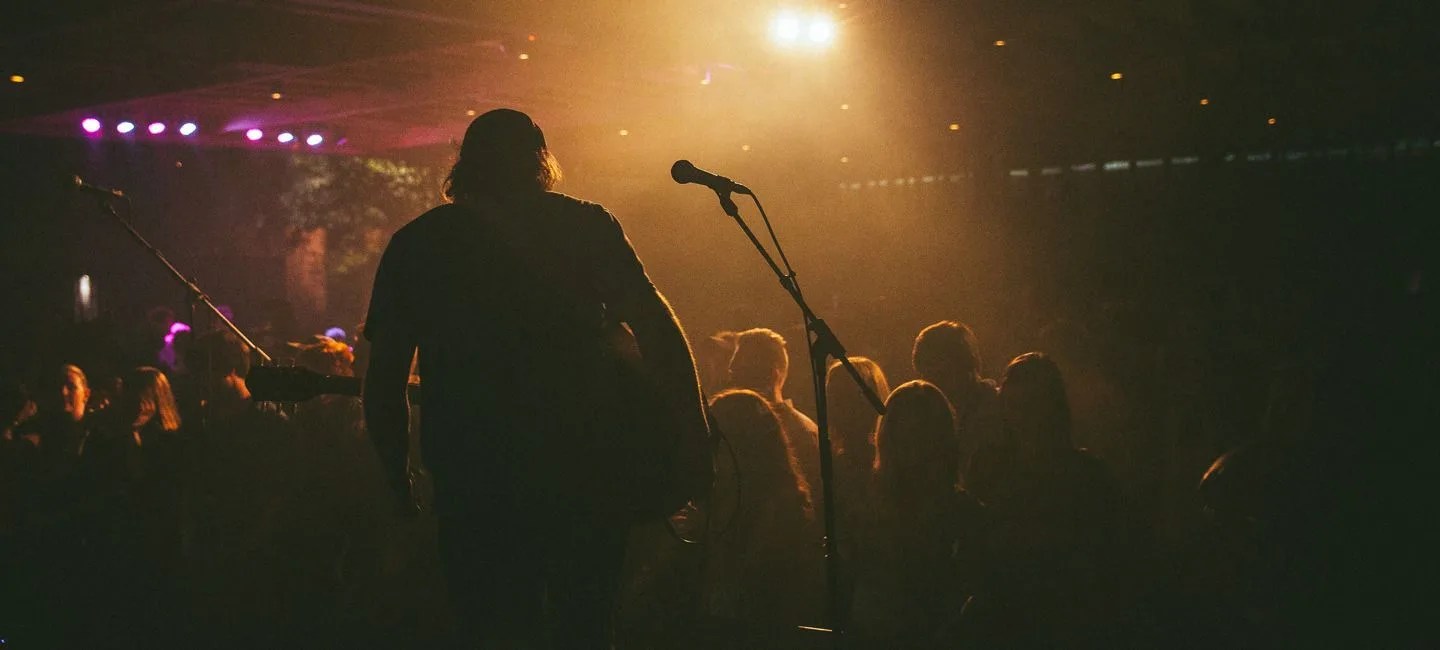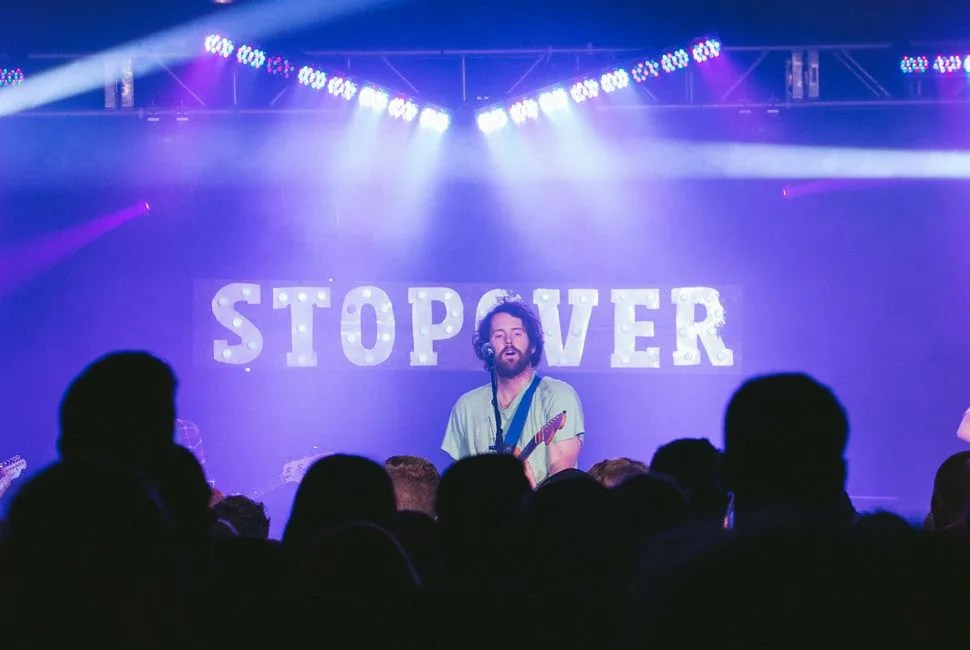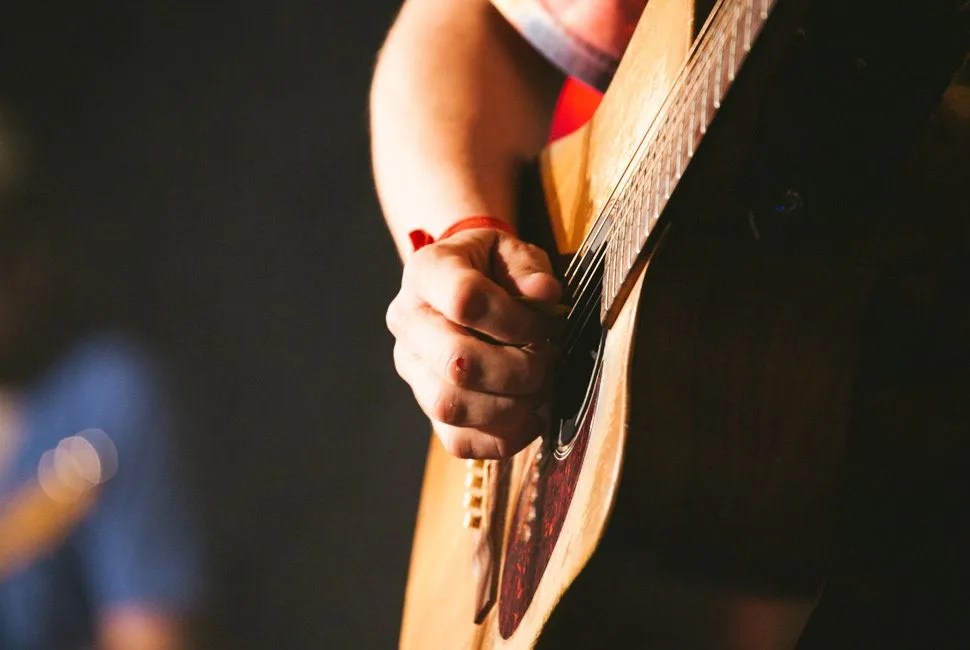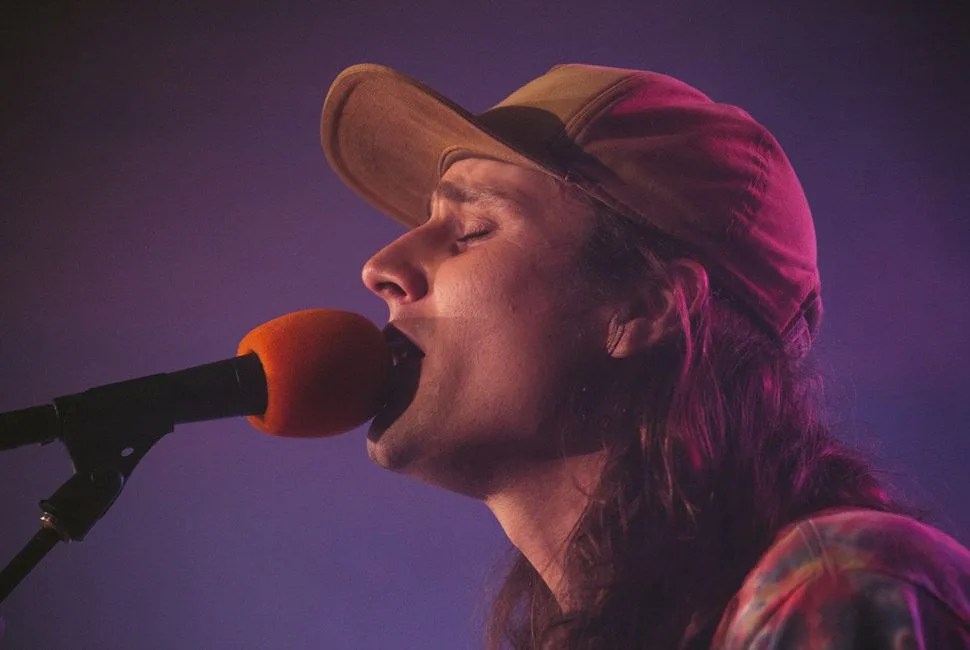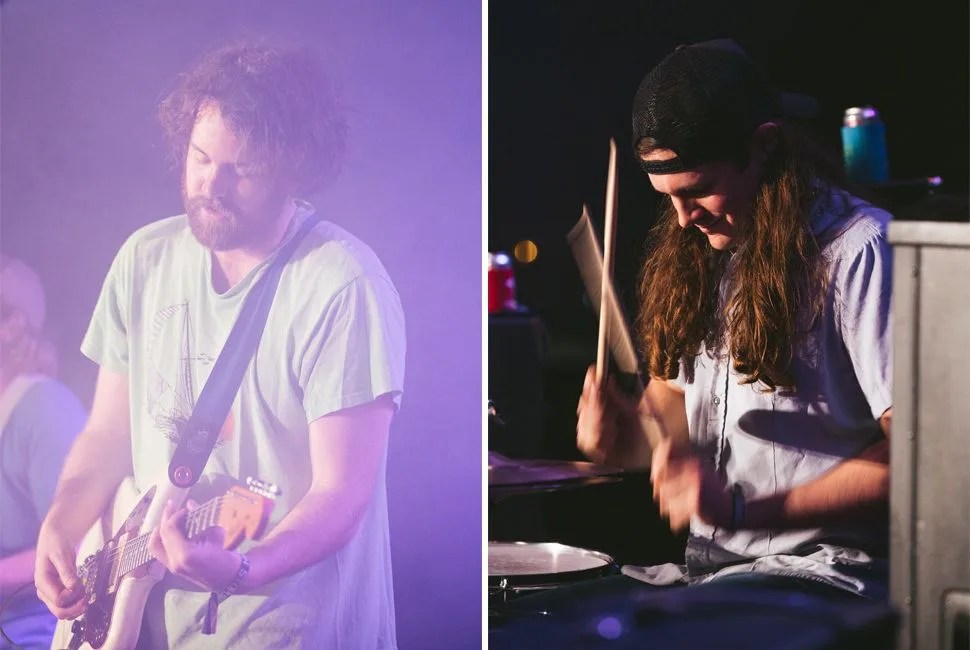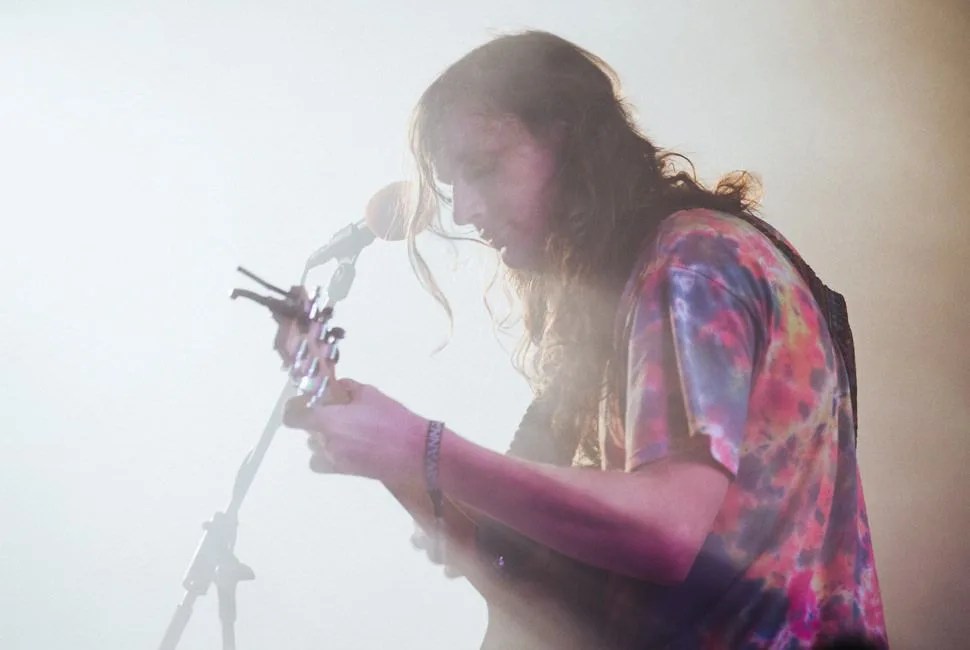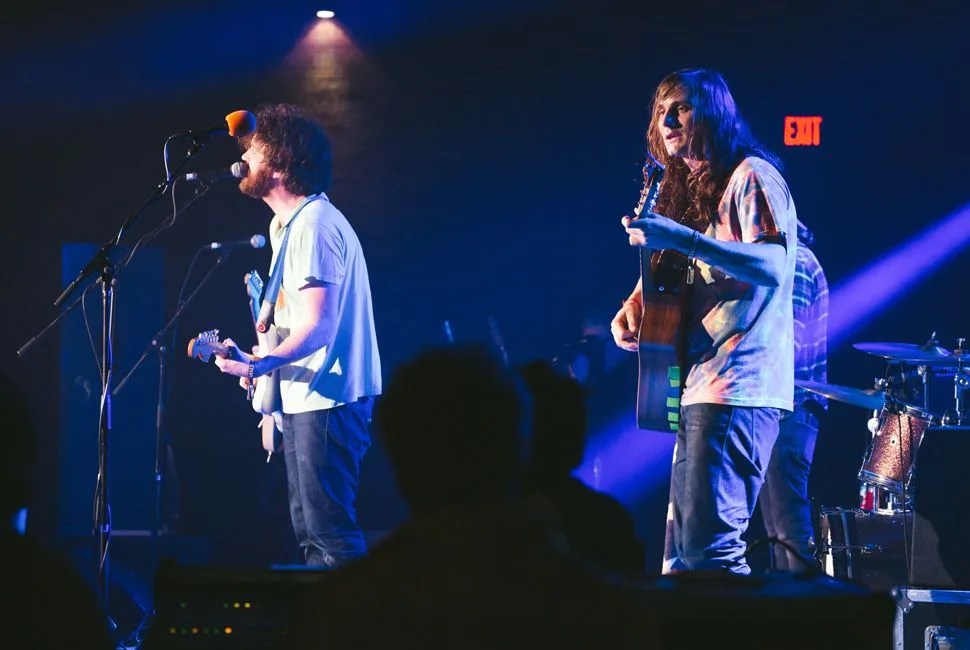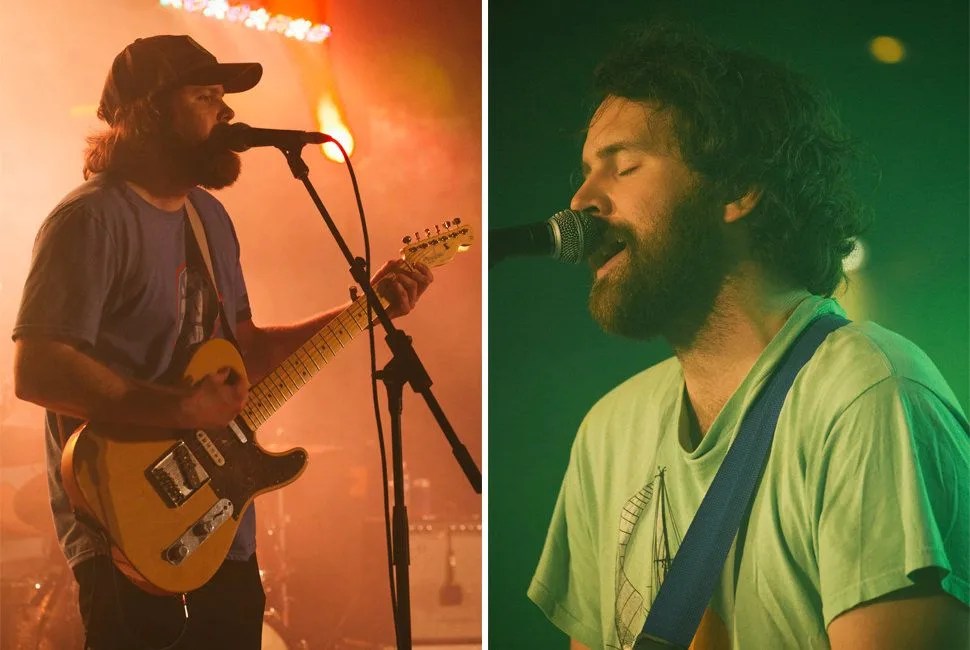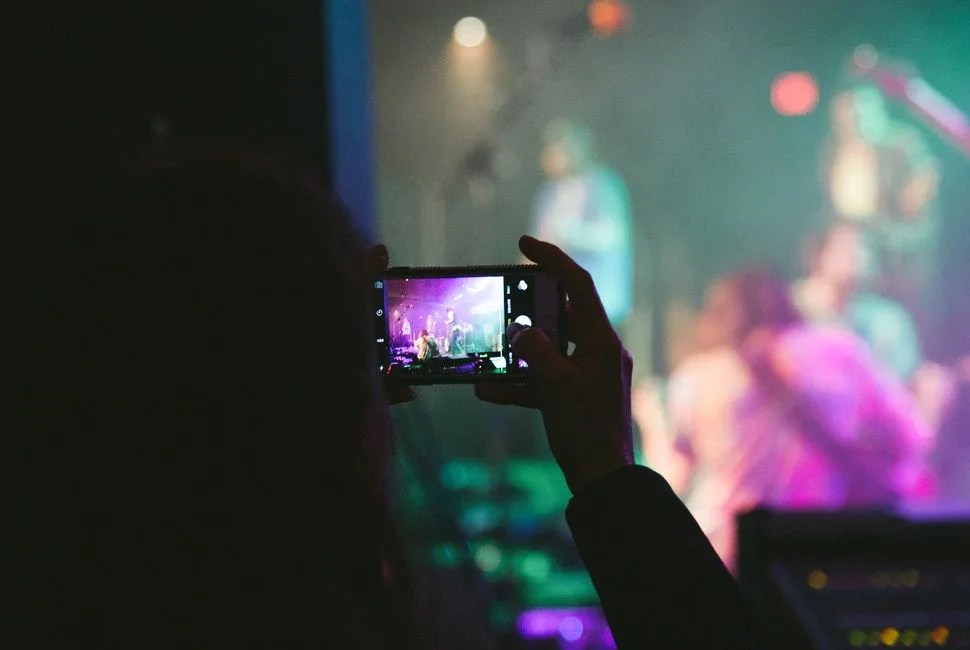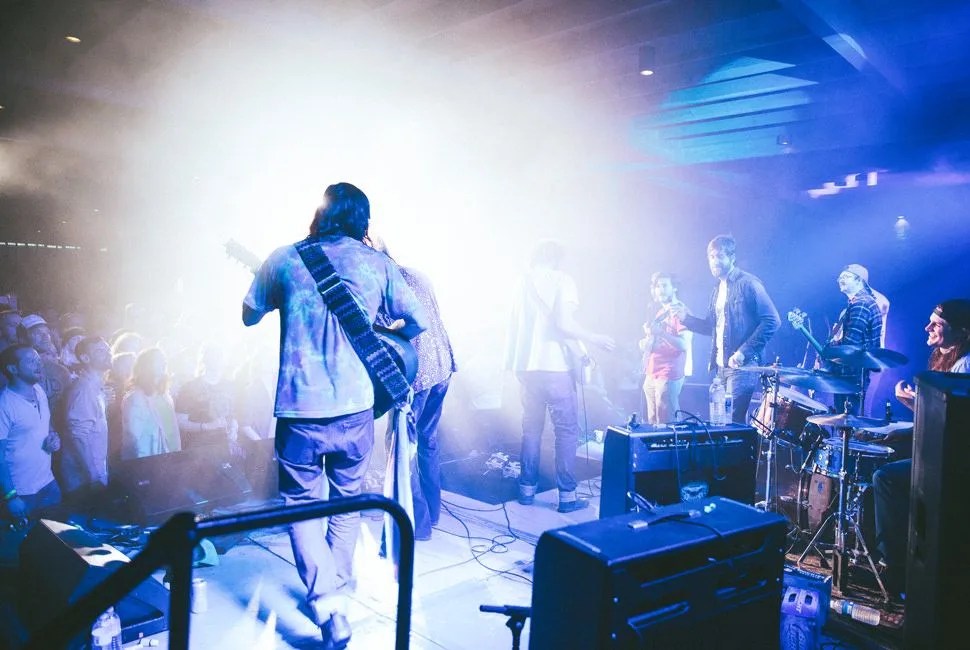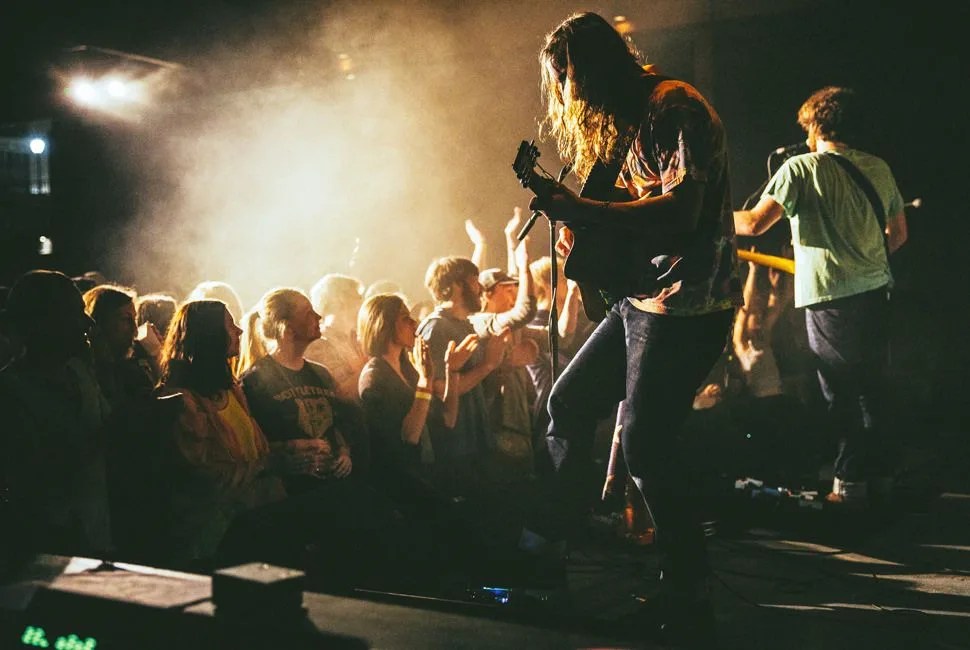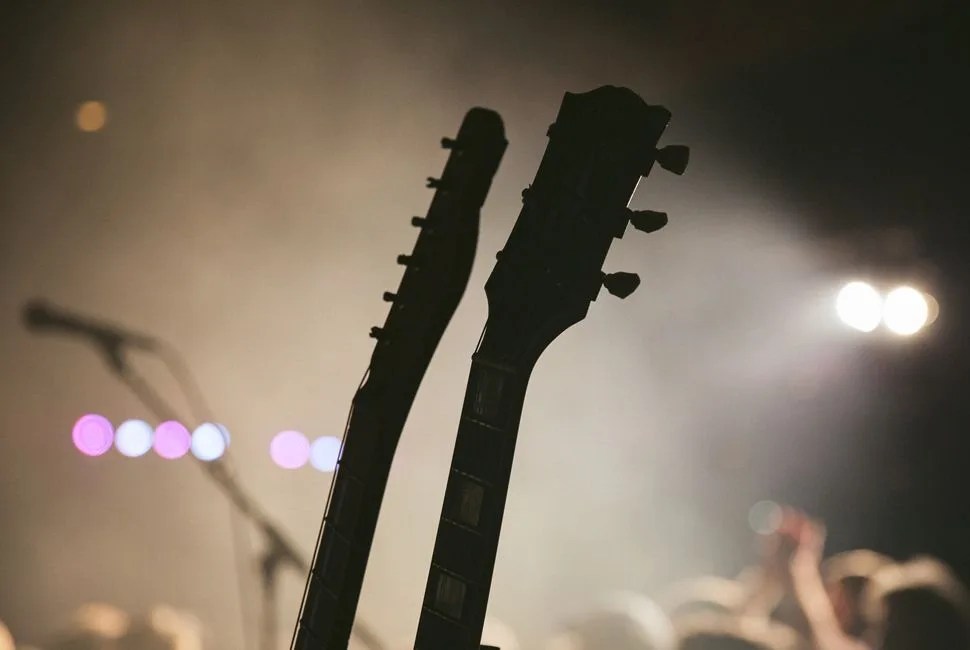In a review of Futurebirds’ album Baba Yaga, Pitchfork went so far as to call the band’s style “cosmic country.” After seeing them at Savannah’s Stopover Music Festival this spring, I’d say the review had it better when the band was described as “a loose-limbed tangle of reverbed guitars, hollered harmonies, and driving yet contemplative Southern rock rhythms.” Yes, that night in Savannah, what Futurebirds sent out into the sultry Georgia air was near-pure to Southern rock: distorted power chords accented by string-bending solos, a driving, plunking bass line, and smoky male vocals sometimes fraught with “hollered harmonies,” and always with a carefree Georgia drawl.
They sang about hotel parties (the subject and name of their latest album), coffee beans and ritalin, and covered CCR’s Lodi. But there was something Pitchfork got right about the Athens, Georgia band: they nail the polished-yet-rough sound at the heart of rock ‘n roll. We caught guitarist Daniel Womack and lead singer Carter King on their way offstage for a few questions about the state of Southern rock, their biggest influences, and what makes for a good cover.
GP: What’s the present state of Southern rock?
Daniel Womack: Of course we don’t like to put labels on shit. People tell us we play alt country, or Southern rock, or that we’re an indie band. We just do whatever the fuck we want to, that’s what’s important to us. Still, the South is one of the last places that has its own cultural stamp. That goes both ways. People from the North see it as a place of hatred and dumb, backwards people, but it also does have this way of life all its own that fights off the homogenization of everything. I love the Southern part of Southern rock.
The South delivers its music. It’s more soulful, perhaps. I don’t think it’s going anywhere. You can always tell when you can hear a Southern band. Especially from the Southeast. That’s what I hope to portray with my music. I want them, when they hear us, to think, these guys are singing about something, they’re passionate. They sing from the gut.
12 photos
GP: Who are your biggest personal influences?
Carter King: My biggest personal influence is the Grateful Dead. My sister was a huge deadhead. Cried her eyes out when Jerry died. My mom found her weed. So she ran away for four days to go see the Dead. And then Jerry died.
But she got me into them. And Jerry Garcia’s been a big influence all around — I’m just constantly amazed by his songwriting.
